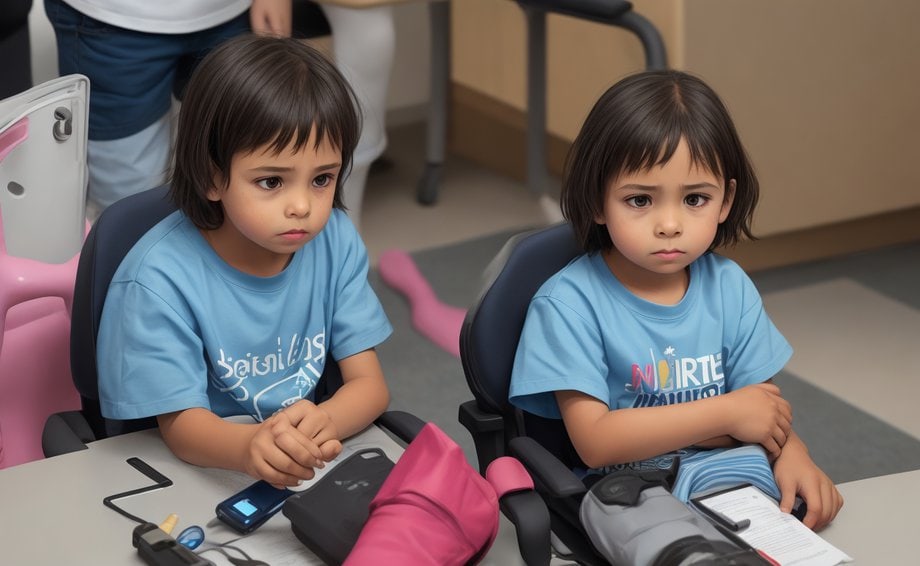Children Mental Health Coverage Under Medicaid

Are you concerned about your child’s mental health? Medicaid can help.
This article explores the importance of children’s mental health and how Medicaid plays a crucial role in providing coverage.
Discover the challenges families face when accessing mental health services and the options available under Medicaid.
We’ll also discuss the gaps in coverage and how we can advocate for improved mental health services for our children.
Let’s ensure our children receive the care they need.
Key Takeaways
- Prioritizing children’s mental health is crucial for their overall well-being and future success.
- Early intervention is essential, especially in light of the impact of COVID-19 on children’s mental health.
- Medicaid plays a crucial role in providing mental health coverage for children, ensuring access to a wide range of treatments.
- Gaps exist in children’s mental health coverage under Medicaid, and advocating for improved coverage is necessary to ensure every child receives necessary care.
The Importance of Children’s Mental Health
You need to prioritize your child’s mental health because it directly impacts their overall well-being and future success. The importance of early intervention can’t be overstated, especially in light of the impact of COVID-19 on children’s mental health.
The pandemic has brought unprecedented challenges that have affected children’s emotional and psychological well-being. Social isolation, disrupted routines, and increased stress levels have taken a toll on their mental health. By prioritizing your child’s mental health, you can provide them with the support and resources they need to navigate these difficult times.
Early intervention allows for timely identification and intervention of mental health issues, preventing them from escalating and impacting their long-term well-being. By addressing their mental health needs now, you’re setting them up for a brighter and more successful future.
Overview of Medicaid’s Role in Mental Health Coverage
Medicaid plays a crucial role in providing mental health coverage for children. With its extensive reach and comprehensive benefits, Medicaid has a significant impact on improving access to mental health services for vulnerable youth.
By covering a wide range of mental health treatments, including therapy, medication, and counseling, Medicaid ensures that children receive the care they need to address their mental health challenges.
However, despite its positive impact, there are still barriers to access that hinder children from fully benefiting from Medicaid’s mental health coverage. These barriers can include limited provider networks, stigma surrounding mental health, and administrative complexities.
Addressing these barriers is essential to ensure that all children have equal access to the mental health services they need.
Challenges in Accessing Mental Health Services for Children
Accessing mental health services for children under Medicaid can present various challenges.
One of the main challenges is affordability. Many families struggle to afford the copayments, deductibles, and other out-of-pocket expenses associated with mental health services. This can limit their access to necessary care and treatment for their children.
Additionally, there are cultural barriers that can hinder access to mental health services. Language barriers, cultural stigmas, and lack of awareness about available services can all contribute to difficulties in accessing care.
It’s important for healthcare providers and policymakers to address these challenges and find solutions to ensure that all children, regardless of their financial situation or cultural background, can access the mental health services they need.
Available Mental Health Coverage Options for Children Under Medicaid
Are you wondering about the extent of mental health coverage available under Medicaid for children?
What’re the age eligibility requirements and how can children access specialized services?
These are important questions to consider when exploring the available mental health coverage options for children under Medicaid.
Medicaid Coverage Extent
To understand the extent of mental health coverage available for children under Medicaid, you have various options to consider. Medicaid coverage limitations can sometimes restrict access to certain services, but there are still resources available to support children’s mental health needs. Here are three key aspects to keep in mind:
- Age eligibility requirements: Medicaid coverage typically extends to children up to the age of 18, ensuring that a wide range of young individuals can receive the necessary mental health care.
- Early intervention programs: Medicaid often provides coverage for early intervention services, which can help identify and address mental health concerns in children at an early stage. These programs focus on promoting healthy development and preventing future complications.
- Behavioral health services: Medicaid offers a range of behavioral health services, including counseling, therapy, and medication management, to address children’s mental health challenges. These services aim to provide comprehensive care and support for children in need.
Age Eligibility Requirements
When it comes to children’s mental health coverage options under Medicaid, it’s important to understand the age eligibility requirements.
Medicaid coverage is available for children from birth through age 18, although some states may extend eligibility until the age of 21. This means that children and adolescents can receive mental health services through Medicaid until they reach the specified age limit.
It’s crucial to consider age eligibility when seeking mental health coverage for children, as it ensures that they’ve access to the necessary resources and support. Medicaid coverage for mental health services can include therapy, counseling, medication management, and other interventions tailored to meet the specific needs of children and adolescents.
Understanding the age eligibility requirements is the first step in accessing these vital services for children under Medicaid.
Access to Specialized Services?
You can access specialized mental health services for children under Medicaid through a variety of available coverage options. These options are designed to ensure that children receive the necessary care they need to address their mental health concerns. Here are three reasons why accessing these specialized services is crucial:
- Service availability: Medicaid offers a range of mental health services specifically tailored to meet the needs of children. This ensures that children have access to professionals who specialize in child mental health and can provide appropriate treatment.
- Treatment effectiveness: The specialized services covered by Medicaid have been proven to be effective in addressing children’s mental health issues. This means that children can receive evidence-based interventions that have been shown to improve their well-being and overall functioning.
- Holistic approach: Medicaid recognizes the importance of taking a holistic approach to children’s mental health. The coverage options available address not only the child’s immediate mental health needs but also support their long-term development and overall health.
Addressing the Gaps in Children’s Mental Health Coverage
Now it’s important to address the gaps in children’s mental health coverage under Medicaid.
You’ll want to explore the limitations and exclusions that exist within this coverage, as well as the challenges children face in accessing specialized services.
Coverage Limitations and Exclusions
Medicaid’s coverage limitations and exclusions leave gaps in children’s mental health coverage. This creates challenges for families who rely on Medicaid to access the specialized services their children need. Advocating for improved coverage is crucial to ensure that every child receives the mental health care they deserve.
Here are three reasons why addressing these gaps is essential:
1) Limited access to therapy: Many children with mental health conditions require ongoing therapy to manage their symptoms and improve their well-being. However, Medicaid’s coverage limitations often result in long wait times or restricted access to these vital services.
2) Exclusion of certain treatments: Some effective treatment options, such as certain medications or alternative therapies, may be excluded from Medicaid coverage. This leaves families struggling to find affordable alternatives or unable to access the most appropriate treatment for their child’s mental health needs.
3) Inadequate coverage for intensive services: Children with severe mental health conditions may require more intensive services, such as residential treatment or intensive outpatient programs. However, Medicaid’s coverage limitations often fall short in providing adequate support for these crucial interventions.
Access to Specialized Services
Families relying on Medicaid often struggle to access specialized mental health services for their children due to coverage limitations and exclusions. This lack of access to specialized treatment options can create significant barriers for families seeking the best care for their children’s mental health needs.
Many children with complex mental health conditions require specialized services, such as intensive therapy, medication management, or specialized counseling. However, Medicaid coverage often falls short in providing these necessary services. Limited provider networks and low reimbursement rates contribute to the difficulty in accessing specialized care. Additionally, there may be a lack of providers who accept Medicaid or have expertise in treating children with specific mental health conditions.
These barriers to access create challenges for families in obtaining the specialized services their children need to thrive.
Advocating for Improved Children’s Mental Health Coverage Under Medicaid
To advocate for improved children’s mental health coverage under Medicaid, you can educate policymakers about the importance of accessible and comprehensive services. By highlighting the need for policy changes, you can help ensure that children receive the mental health support they require.
Here are three key points to emphasize when advocating for improved children’s mental health coverage:
- Improving Access: Stress the significance of increasing access to mental health services for children in low-income families. Explain how early intervention and treatment can prevent long-term consequences and improve overall well-being.
- Comprehensive Coverage: Emphasize the importance of comprehensive coverage that includes not only therapy and medication but also other essential services like case management and family support. Highlight how a holistic approach can lead to better outcomes for children.
- Reducing Stigma: Advocate for efforts to reduce the stigma surrounding mental health issues, as this can help children and families feel more comfortable seeking the necessary care.
Frequently Asked Questions
How Does Children’s Mental Health Coverage Under Medicaid Compare to Coverage for Adults?
Children’s mental health coverage under Medicaid is important. It is necessary to compare this coverage to that for adults to understand any differences or discrepancies.
Are There Any Limitations or Restrictions on the Types of Mental Health Services That Are Covered for Children Under Medicaid?
There are limitations and restrictions on the types of mental health services covered for children under Medicaid. It’s important to understand these limitations to ensure your child receives the appropriate care they need.
What Steps Can Parents or Guardians Take if They Encounter Difficulties in Accessing Mental Health Services for Their Children Under Medicaid?
If you encounter difficulties accessing mental health services for your children under Medicaid, take these steps for advocacy: reach out to local resources for parents, educate yourself on your rights, and seek support from advocacy organizations.
Are There Any Specific Initiatives or Programs Aimed at Improving Children’s Mental Health Coverage Under Medicaid?
There are specific initiatives and programs aimed at improving children’s mental health coverage under Medicaid. These initiatives and programs focus on providing access to necessary services and support for children’s mental health needs.
What Are Some Potential Long-Term Benefits of Ensuring Comprehensive Mental Health Coverage for Children Under Medicaid?
Ensuring comprehensive mental health coverage for children under Medicaid can lead to potential long-term benefits such as improved overall well-being, enhanced academic performance, reduced healthcare costs, and a stronger foundation for future success.








